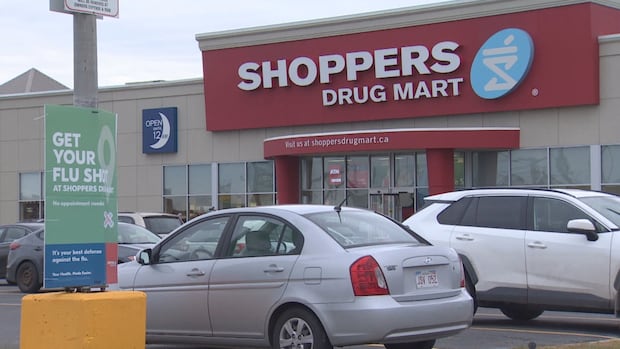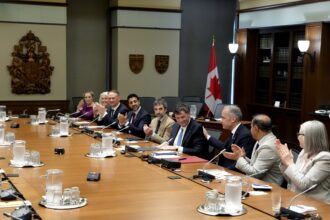In what was billed as a groundbreaking initiative to alleviate pressure on New Brunswick’s strained healthcare system, a provincial pharmacy pilot program has fallen significantly short of expectations, raising serious questions about healthcare reform implementation in the province. What began with ambitious promises to divert thousands of patients from emergency rooms has delivered disappointingly meager results, with only 17 people accessing care through the program in its first month of operation.
The pilot project, launched in early May across 10 pharmacies in the Fredericton area, was designed to enable pharmacists to assess and treat patients for 32 minor ailments without the need for a doctor’s visit. Provincial officials had initially projected the program would serve approximately 5,000 patients within its six-month trial period—a target that now appears dramatically unattainable given the current participation rates.
“The numbers are concerning, but perhaps not surprising given the minimal public awareness campaign,” said Dr. Mark Thompson, healthcare policy analyst at Dalhousie University. “Transformative healthcare initiatives require robust communication strategies to ensure citizens understand new service pathways available to them.”
Health Minister Bruce Fitch acknowledged the underwhelming participation but maintained an optimistic stance, suggesting the program remains in its early stages. “We’re still in the beginning phase,” Fitch told reporters at the legislative assembly. “We need to continue promoting awareness about these services and ensure New Brunswickers know this option exists.”
The New Brunswick Medical Society has raised concerns about the project’s implementation, noting that insufficient collaboration with physicians may have contributed to its poor performance. “Effective healthcare reform requires meaningful consultation with all stakeholders in the system,” said Dr. Sarah Williams, NBMS president. “Programs developed in isolation often struggle to integrate successfully with existing care networks.”
Documentation provided through access to information requests reveals additional concerns about the program’s design. Initial estimates suggested each pharmacist consultation would cost the province approximately $55—significantly higher than similar services in neighboring provinces. This pricing structure has prompted questions about resource allocation and financial sustainability.
The province has invested considerable resources in this initiative as part of its broader healthcare transformation plan. The apparent disconnect between projected utilization and actual participation rates highlights potential gaps in healthcare planning and implementation methodologies across New Brunswick’s healthcare system.
Opposition healthcare critic Robert McKee has called the outcome “deeply disappointing,” suggesting it represents a pattern of healthcare initiatives that fail to deliver on their promises. “This isn’t just about numbers,” McKee stated. “Every failed healthcare initiative represents missed opportunities to improve access for New Brunswickers who desperately need care.”
Community pharmacists participating in the program have expressed frustration about insufficient marketing and public education efforts. “We were ready to help alleviate pressure on the system,” said Jennifer Morrison, a Fredericton pharmacist. “But if patients don’t know the service exists or don’t understand how to access it, we can’t fulfill that potential.”
Healthcare experts emphasize that pilot programs often require adjustment periods, but the magnitude of the participation gap suggests fundamental issues with program design or implementation. The province has indicated it will review the project’s performance metrics but has not yet announced specific modifications to improve uptake.
As New Brunswick continues to navigate healthcare reform amid physician shortages and emergency department overcrowding, the faltering pharmacy pilot raises a critical question: Can the province effectively implement innovative healthcare solutions without more comprehensive stakeholder engagement and robust public communication strategies?










